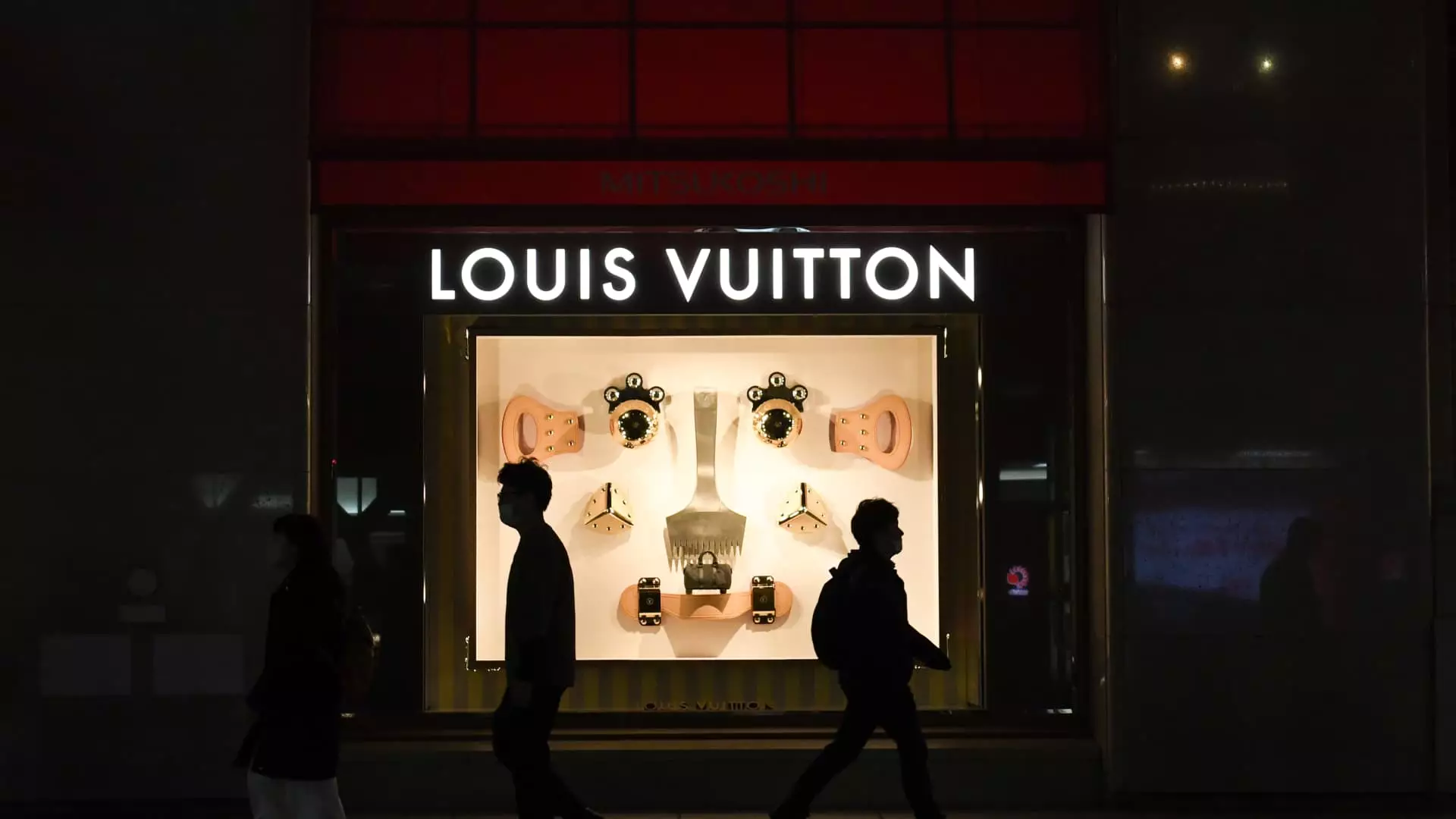When luxury titan LVMH unexpectedly thrummed the alarm bell with an 8% dive in its shares, a substantial shakeup rattled not just its corporate structure but the entire luxury market framework. Once reigning as the globe’s largest luxury firm, LVMH momentarily slipped into the shadows, eclipsed by rival Hermès. This rapid fall was triggered by an unanticipated 3% dip in first-quarter sales, a stark departure from the industry’s forecasted growth trajectory. Such an unexpected downturn raises not just eyebrows but flags—what does this indicate about the health of luxury brands, and are they truly immune to economic shifts as they often claim?
Missed Expectations: A Broad Market Reflection
The broader luxury sector, in the wake of LVMH’s alarming figures, saw its shares trending downward—Kering down 2.5%, Burberry sinking 4.4%, and Richemont meandering with a 1.6% decrease. For an industry so commonly draped in an aura of aspirational wealth, this collective decline paints a sobering picture. The performance of LVMH, a significant bellwether, signals a possible contagion effect threatening brands that skirt the high-end market. The stakes are rising: with elite companies barely evading a sales slump, how much longer can they resist the pressures that a troubled global economy exerts on the luxury goods sector?
The Impact of Geopolitical Uncertainty
LVMH’s struggle can, in part, be attributed to broader geopolitical factors—most notably the fallout from U.S. trade policies. The company cited dwindling demand, especially for cognac in both China and the U.S., as a major contributor to its losses. The idea that geopolitics could decide what luxury goods Americans and Chinese consumers purchase may seem incredulous to some; however, with rich consumers often being the first to pull back on discretionary spending during turbulent times, LVMH’s concerns are valid. The prevalent notion of luxury as a hedge against economic woes is quickly losing its luster amidst tariffs and trade tensions.
Analyst Sentiments: A Bleak Forecast
Financial analysts were quick to voice their discontent following LVMH’s results, with Citi analysts stating there was “not much to cheer” about. Jefferies even reevaluated its target price for LVMH’s stock, trimming it from 670 euros to a mere 510 euros. This raises an ominous question: as the economy faces a tempest of uncertainty, can luxury brands like LVMH sustain their growth, or are they at risk of being swallowed by the very market they’ve historically dominated?
Resilience in Uncertainty: LVMH’s Defensive Strategies
LVMH’s Chief Financial Officer, Céline Cabanis, attempted to direct some of the narrative back to a positive light, affirming there was no glaring shift in their overall trends during the first quarter. But the elusive nature of the wealth markets is surely not lost on her. The acknowledgment that high-end consumers are the most sensitive to economic fluctuations reveals a deeply troubling aspect of the luxury economy. The suggestion of repricing goods as a shield against inflation might offer a short-term fix, but raises ethical concerns on consumer trust: how far can brands push such price increases before facing consumer backlash? Should luxury houses prioritize maintaining exclusivity over perceived value?
Consumer Demand: The Key to Stability
The luxury market’s precarious balance hinges on its ability to not just cater to wealth but anticipate and respond to market changes effectively. The contributions from various regions tell a compelling, if concerning, story. While Europe saw a feeble uptick, Asia (excluding Japan) plummeted by 11%. Despite LVMH’s successful run through the pandemic, this current instability suggests that any smugness towards global economic resilience is misplaced. With aspirations tied to both consumer confidence and geopolitical relations, luxury markets may cling to a thin veneer of stability that could shatter if the current economic climate persists.
As we dissect these developments, one thing becomes clear: LVMH and the luxury sector may not be as insulated from global economic currents as they would like us to believe. In an age marked by uncertainties, the very allure of luxury could transform from an unassailable fortress into a tenuous gamble.

